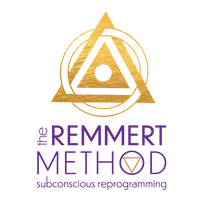Here's the Scientific Research
For those who are interested, here's some of the scientific research behind changing negative childhood memories to the opposite, positive, and empowering. Let us know if you have any questions or need clarification or more information on anything.
Effects of Childhood Memories on the Adult:
The effects of Adverse Childhood Experiences (ACEs) on the adult:
https://www.cdc.gov/violenceprevention/aces/index.html?CDC_AA_refVal=https%3A%2F%2Fwww.cdc.gov%2Fviolenceprevention%2Facestudy%2Findex.html
How long-term memories are processed to guide behavior:
https://www.sciencedaily.com/releases/2013/05/130516123914.htm
The Brain's Process for Decision-Making:
"When faced with a choice, the brain retrieves specific traces of memories, rather than a generalized overview of past experiences, from its mental Rolodex, according to new brain-imaging research from The University of Texas at Austin."
https://www.sciencedaily.com/releases/2013/11/131108112144.htm
Changing Memories:
Memories are already changing every time we recall them:
https://www.jneurosci.org/content/32/35/12144
Retroactive Interference (RI) in Implicit Memory:
https://www.sciencedirect.com/topics/social-sciences/implicit-memory?fbclid=IwAR0AgRNT5OwjR4iX1sc3nPYn98EbSwNP-SJH3Z-Cs_fzKoXC49TQuqSdy5g
Memory Reconsolidation:
https://www.sciencedirect.com/science/article/abs/pii/S1364661317300785
False Memories:
Criminal Psychologist and Memory Scientist, Julia Shaw specializes in false memory. She shares her experience in deliberately creating false memories, and how that works, in this TEDx Talk:
https://youtu.be/owAeCKiM_4A
Memory Reconsolidation and PTSD:
Director of the Memories in Neuropsychiatric Disorders Lab in the Department of Psychology at the University of Cambridge, Amy Milton shares her research on changing memories (Memory Reconsolidation) to treat PTSD in this TED Talk:
https://youtu.be/a8vxE6EqRM4
To conclude - based on the above (amongst others)
1. The brain is constantly referring to the implicit memory from previous experiences (childhood in particular), in order to know what experiences mean and how to automatically respond and react, unconsciously.
2. Memories are already changing.
3. Although Amy Milton talks about changing the memories of the events that appear to have caused the PTSD, it's the childhood memories (implicit memory) that determined the PTSD response in the first place (not everyone who experiences the same trauma develops PTSD). And although she also mentions needing to use a beta-blocker drug in order to change these memories, it can be done without drugs and using just brain chemistry. :)
Let us know if you have more questions or need more clarification or research references.
Effects of Childhood Memories on the Adult:
The effects of Adverse Childhood Experiences (ACEs) on the adult:
https://www.cdc.gov/violenceprevention/aces/index.html?CDC_AA_refVal=https%3A%2F%2Fwww.cdc.gov%2Fviolenceprevention%2Facestudy%2Findex.html
How long-term memories are processed to guide behavior:
https://www.sciencedaily.com/releases/2013/05/130516123914.htm
The Brain's Process for Decision-Making:
"When faced with a choice, the brain retrieves specific traces of memories, rather than a generalized overview of past experiences, from its mental Rolodex, according to new brain-imaging research from The University of Texas at Austin."
https://www.sciencedaily.com/releases/2013/11/131108112144.htm
Changing Memories:
Memories are already changing every time we recall them:
https://www.jneurosci.org/content/32/35/12144
Retroactive Interference (RI) in Implicit Memory:
https://www.sciencedirect.com/topics/social-sciences/implicit-memory?fbclid=IwAR0AgRNT5OwjR4iX1sc3nPYn98EbSwNP-SJH3Z-Cs_fzKoXC49TQuqSdy5g
Memory Reconsolidation:
https://www.sciencedirect.com/science/article/abs/pii/S1364661317300785
False Memories:
Criminal Psychologist and Memory Scientist, Julia Shaw specializes in false memory. She shares her experience in deliberately creating false memories, and how that works, in this TEDx Talk:
https://youtu.be/owAeCKiM_4A
Memory Reconsolidation and PTSD:
Director of the Memories in Neuropsychiatric Disorders Lab in the Department of Psychology at the University of Cambridge, Amy Milton shares her research on changing memories (Memory Reconsolidation) to treat PTSD in this TED Talk:
https://youtu.be/a8vxE6EqRM4
To conclude - based on the above (amongst others)
1. The brain is constantly referring to the implicit memory from previous experiences (childhood in particular), in order to know what experiences mean and how to automatically respond and react, unconsciously.
2. Memories are already changing.
3. Although Amy Milton talks about changing the memories of the events that appear to have caused the PTSD, it's the childhood memories (implicit memory) that determined the PTSD response in the first place (not everyone who experiences the same trauma develops PTSD). And although she also mentions needing to use a beta-blocker drug in order to change these memories, it can be done without drugs and using just brain chemistry. :)
Let us know if you have more questions or need more clarification or research references.
© COPYRIGHT 2016 ALL RIGHTS RESERVED.
